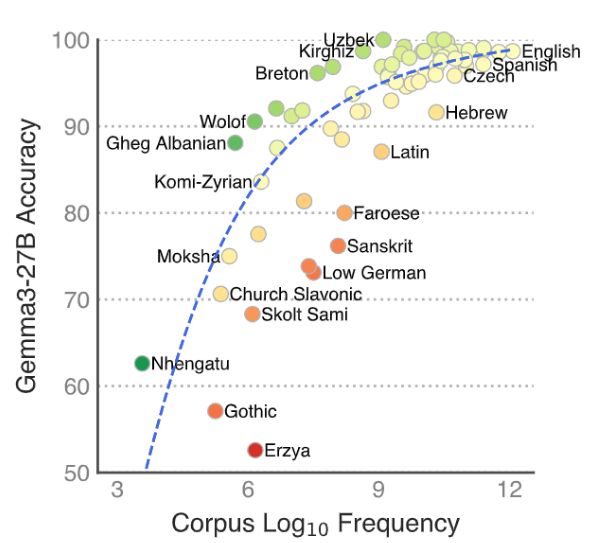Arianna Bisazza
@arianna-bis.bsky.social
180 followers
130 following
31 posts
Associate Professor at GroNLP ( @gronlp.bsky.social ) #NLP | Multilingualism | Interpretability | Language Learning in Humans vs NeuralNets | Mum^2
Head of the InClow research group: https://inclow-lm.github.io/
Posts
Media
Videos
Starter Packs
Reposted by Arianna Bisazza
Arianna Bisazza
@arianna-bis.bsky.social
· Jun 19
Arianna Bisazza
@arianna-bis.bsky.social
· Jun 19
Arianna Bisazza
@arianna-bis.bsky.social
· Jun 19
Arianna Bisazza
@arianna-bis.bsky.social
· Jun 19

TurBLiMP: A Turkish Benchmark of Linguistic Minimal Pairs
We introduce TurBLiMP, the first Turkish benchmark of linguistic minimal pairs, designed to evaluate the linguistic abilities of monolingual and multilingual language models (LMs). Covering 16 linguis...
arxiv.org
Arianna Bisazza
@arianna-bis.bsky.social
· May 30
Arianna Bisazza
@arianna-bis.bsky.social
· May 30
Arianna Bisazza
@arianna-bis.bsky.social
· May 30
Arianna Bisazza
@arianna-bis.bsky.social
· May 30
Francesca Padovani
@frap98.bsky.social
· May 30

Child-Directed Language Does Not Consistently Boost Syntax Learning in Language Models
Seminal work by Huebner et al. (2021) showed that language models (LMs) trained on English Child-Directed Language (CDL) can reach similar syntactic abilities as LMs trained on much larger amounts of ...
arxiv.org
Arianna Bisazza
@arianna-bis.bsky.social
· May 28
Arianna Bisazza
@arianna-bis.bsky.social
· May 27
Reposted by Arianna Bisazza












